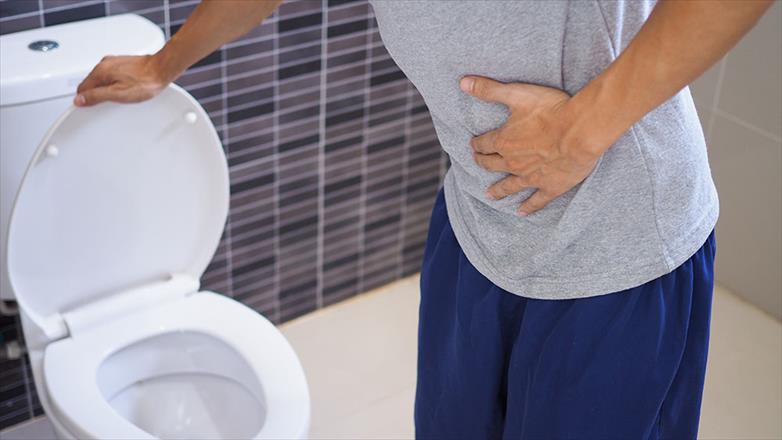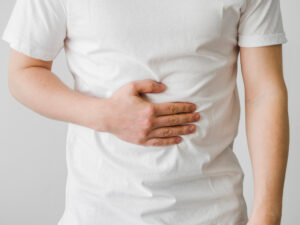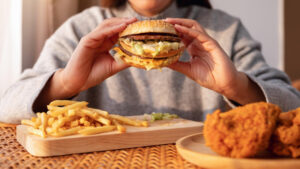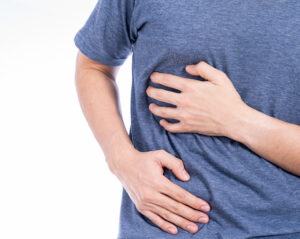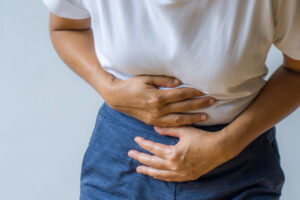Let’s talk about a topic many of us might avoid—sticky stool. It’s that frustrating situation when your bowel movement is hard to flush, sticks to the toilet bowl, or leaves you wiping more than usual to feel clean. It might feel awkward to discuss, but sticky stool can offer valuable clues about your digestive health. In this post, we’ll cover the common causes, what they might indicate, and how to manage or prevent sticky stool.
Common Causes of Sticky Stool
Sticky stool can occur for a variety of reasons, from what you eat to underlying health conditions. Let’s break down the most common causes:
1. Excessive Dietary Fat
Eating too much unhealthy fat—like fried foods or processed snacks—can overload your digestive system. This results in greasy, sticky stools that are harder to pass and clean up.
2. Malabsorption
When your body has trouble absorbing nutrients, your stool may change in consistency. Conditions that affect nutrient absorption include:
nar dapibus leo.
- Celiac Disease: A condition where gluten consumption damages the small intestine, impairing nutrient absorption and leading to serious complications, such as malnutrition, osteoporosis, infertility, and an increased risk of certain cancers.
- Lactose Intolerance: This is a common digestive condition where the body is unable to properly digest lactose, a sugar found in milk and dairy products. Around 65–70% of the world’s population experiences some degree of lactose intolerance after infancy, as lactase (the enzyme that breaks down lactose) production naturally declines with age in many people.
- Pancreatic Problems: Pancreatic issues can cause sticky stools due to insufficient production of digestive enzymes, which are essential for breaking down fats, carbohydrates, and proteins. When the pancreas is damaged or not functioning properly—due to conditions like chronic pancreatitis, cystic fibrosis, or pancreatic cancer—it fails to release enough enzymes. This leads to malabsorption, particularly of fats, resulting in greasy, sticky, pale stools that are difficult to flush.
- Inflammatory Bowel Disease (IBD): IBD, which includes Crohn’s disease and ulcerative colitis, can lead to sticky stool due to inflammation in the digestive tract. This inflammation can cause increased mucus production and impair nutrient absorption, resulting in greasy, sticky stools.
3. Mucus Overproduction
Your digestive system naturally produces mucus for lubrication, but conditions like irritable bowel syndrome (IBS), ulcerative colitis, and Crohn’s disease can lead to excessive mucus production, causing sticky stools.
4. Fiber Imbalance
A diet that is either too high or too low in fibre can throw off stool consistency. The type of fibre matters too. Insoluble fibre (found in whole grains, vegetables, and nuts) helps bulk up stool, while soluble fibre (found in fruits and oats) aids in smooth digestion. A fibre imbalance can lead to digestive issues, including sticky stools.
5. Digestive Infections
Bacterial, viral, or parasitic infections can damage the intestinal lining and impair the absorption of nutrients, especially fats, resulting in altered stool consistency and stickiness. Treatment depends on the cause of the infection and may include hydration, antibiotics, antiparasitic medications, or probiotics to restore gut balance. If sticky stools persist or are severe, medical attention is recommended to rule out complications or underlying conditions.
6. Medication Side Effects
Certain medications, like antibiotics or iron supplements, can temporarily change stool texture or consistency. Weight loss medications, particularly those that affect fat absorption, can lead to sticky stools as a side effect.
How to Manage Sticky Stool
Your diet plays a huge role in digestive health. Here are some tips to keep things running smoothly and prevent sticky stool:
1. Focus on Fiber
A balanced fibre intake promotes healthy digestion:
- Insoluble Fiber: Found in whole grains, nuts, seeds, and vegetables, this type adds bulk to stool.
- Soluble Fiber: Found in oats, beans, and fruits like apples and oranges, it helps stool retain water for easier passage.
Tip: Gradually increase your daily fibre intake to 25–30 grams to avoid bloating or discomfort.
2. Choose Healthy Fats
Healthy fats, like those found in avocados, fatty fish (such as salmon), and olive oil, are easier on the digestive system and can help prevent sticky stools.
3. Stay Hydrated
Drink 8–10 cups (2–2.5 litres) of water daily to keep your stool soft and easier to pass.
4. Reduce Processed Foods
Minimize processed, fried foods, sugary snacks, and refined grains like white bread. These foods lack fibre and nutrients, which can negatively affect your digestion.
5. Add Probiotic-Rich Foods
Probiotics support gut health and help keep your digestive system in balance. Try yogurt with live cultures, or fermented foods like kimchi, sauerkraut, or miso.
6. Identify Food Triggers
If certain foods seem to cause sticky stool, you might have a food intolerance (like dairy or gluten). Keep a food journal to track any patterns and talk to your doctor if needed.
7. Eat Smaller, More Frequent Meals
Eating smaller meals throughout the day can ease digestive strain, especially if you are dealing with malabsorption issues.
When Should You Be Concerned?
Occasional sticky stool is usually not alarming, especially if it follows dietary changes or minor digestive upsets. However, frequent occurrences could point to underlying health problems that require medical attention.
See a Doctor If:
- Sticky stool persists for more than a week.
- You experience symptoms like fever, abdominal pain, unexplained weight loss, or blood in your stool.
- You notice signs of malnutrition (like brittle nails or hair thinning).
Final Thoughts
Sticky stool may seem like a taboo subject, but it’s a reflection of your digestive health. While occasional episodes are usually harmless, frequent or persistent issues may be a sign of an underlying problem. Simple changes to your diet—like adding more fibre, staying hydrated, and reducing processed foods—can make a big difference.
If you’re dealing with ongoing symptoms, don’t hesitate to consult a healthcare provider for advice. And remember, it’s time to normalize conversations about gut health!

